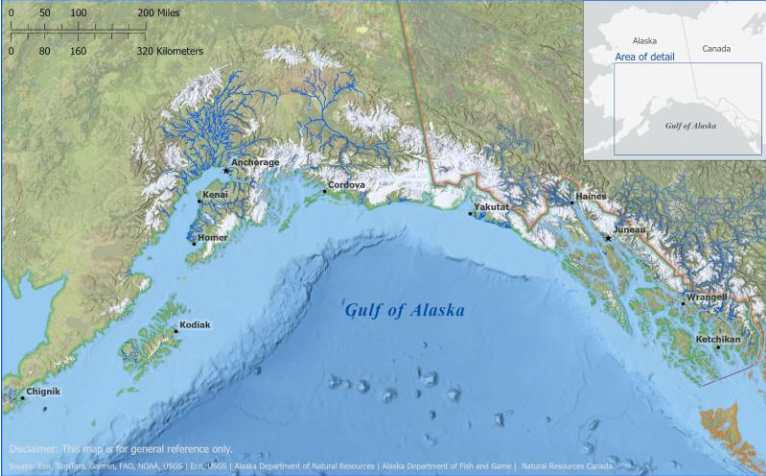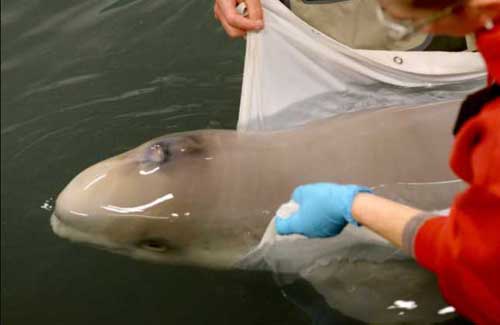
ANCHORAGE, AK—The U.S. Fish and Wildlife Service (Service) Tuesday announced its determination that the Alexander Archipelago wolf (Canis lupus ligoni) does not warrant protection as an endangered or threatened species under the Endangered Species Act (ESA). The decision came as a result from the Service’s 12-month finding on a petition from multiple groups to list the wolf.
Although the Alexander Archipelago wolf faces several stressors throughout its range related to wolf harvest, timber harvest, road development, and climate-related events in Southeast Alaska and coastal British Columbia, the best available information indicates that populations of the wolf in most of its range are likely stable. The current estimate of the rangewide population is approximately 850-2,700 wolves. The petitioners also requested that the Service consider wolves on Prince of Wales and nearby islands (collectively referred to in Alaska as Game Management Unit 2 or GMU 2) as a distinct population segment (DPS).
In cases where an entire species or subspecies does not merit listing, the ESA provides the ability for the Service to list DPS’s when certain criteria are met. The Service determined that these island wolves did not qualify as a DPS for listing consideration under the ESA because the population does not persist in an unusual or unique ecological setting; loss of the population would not result in a significant gap in the range; and the population does not differ markedly from other populations based on its genetic characteristics.[xyz-ihs snippet=”adsense-body-ad”]
On Prince of Wales and nearby islands, the cumulative effect of stressors has caused an apparent population decline, with further declines predicted over the next 30 years. However, wolves here constitute only 4 percent of the range of the Alexander Archipelago wolf and 6 percent of its current estimated total population. Therefore, negative population impacts on these islands will likely not affect the rangewide population in a significant way. Nonetheless, the Service believes careful management actions and decisions are needed to ensure the future health of the population at these sites.
The Service’s 12-month finding is based upon the best available scientific information relevant to the current and future status of the Alexander Archipelago wolf, application of standards within the ESA and implementing regulations and policies. The scientific information is summarized in the peerreviewed Status Assessment of the Alexander Archipelago Wolf.
The finding is currently available at https://www.federalregister.gov/public-inspection. The finding and the species status assessment will be available online tomorrow athttps://www.regulations.gov at Docket Number FWS–R7–ES–2015–0167. Supporting documentation used by the Service in preparing this finding will be available for public inspection, by appointment, during normal business hours at the U.S. Fish and Wildlife Service, Anchorage Fish and Wildlife Field Office, 4700 BLM Rd., Anchorage, AK, 99507-2546. Any new information, materials, comments, or questions concerning this finding may be submitted to the above address. If new information emerges that suggests the Alexander Archipelago wolf may warrant protection under the ESA, the Service will review that information and could subsequently revise its decision.
Source: USFWS [xyz-ihs snippet=”Adversal-468×60″]







